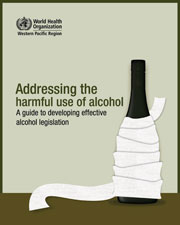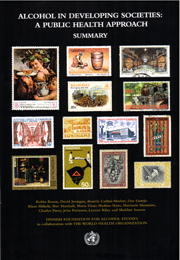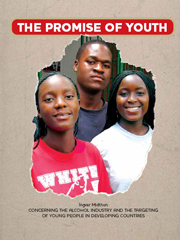
Alcohol, Drugs and Development (ADD)
Alcohol has been in use in most societies for ages. Normally the use of alcohol has been regulated by traditions, social norms and natural limitations. Still, too often we see traditional types of alcohol use representing an alcohol problem in the village or urban setting. This applies to imported or domestic licensed products as well as legal or illegal home brews and home made spirits. New types of alcoholic drinks and drinking patterns will usually come in addition to already existing problems. In a time where there is a rapid socio-cultural change and increasing cultural globalisation, growth in the use of drugs and alcohol may be expected if counter-measures are not implemented. This has already been the experience in many developing societies.
Adverse effects of alcohol consumption are well documented in scientific literature. Many NGOs and development agencies have also witnessed these effects at various project locations in developing societies. The ill effects of alcohol consumption can arise from a single bout of drinking or from the long term effects of alcohol consumption. Health, social and economic effects are all prevalent. Alcohol use is one of the major causes of the global disease burden, according to an estimate made by The World Health Organisation (WHO); World Health Report 2002
Figures for 2008 from the World Bank show that 1.4 billion people are living under the "poverty line", now defines as USD 1,25 a day. 17 million people in developing countries die each year from curable infectious and parasitic diseases such as diarrhoea, measles, malaria and tuberculosis. Poor people around the globe are vulnerable even to small changes destabilising their daily hand to mouth economy. For those living under harsh circumstances with few possibilities for relaxation, alcohol may seem an easy way out. This is also along the lines of the image portrayed by the alcohol producers – a taste of luxury, recreation and the world beyond everyday worries.
But the social, economic, health and other problems created by alcohol use are rather additional burdens for poor people. This has been pointed out by the poor themselves in a WHO and World Bank report from the Voice of the Poor study (“Dying for Change, Poor peoples experience of health and ill-health”). It states that poor people see alcohol and drug use as a major consequence of poverty. Groups and individuals interviewed world-wide mention a pattern of male drunkenness, scarce money spent on alcohol and drugs, and domestic violence.
The organizations behind this web site have specialized in substance abuse as a development issue. For more information, please click below:
FORUT - Norwegian Campaign for Development and Solidarity
![]()
![]()
Developed with CustomPublish CMS by Nettinfo AS




